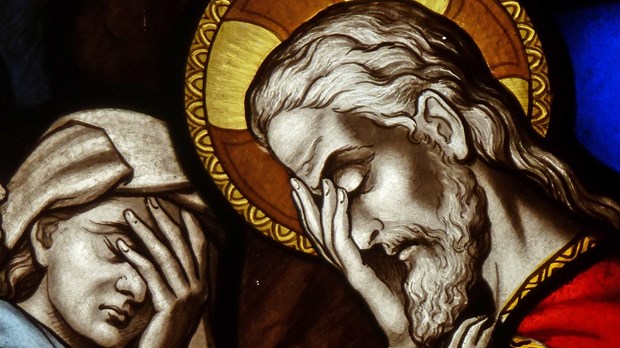
Jesus didn’t value crowds. He didn’t even trust them (John 2:23-24). But he valued the people in them.
Even though they chased him everywhere he went, Jesus and crowds had, at best, a strained relationship. As pastors, we need to keep this in mind as we look at how many (or few) people come to our churches every week.
It’s important to keep an accurate account of attendance numbers, offering, salvations, and more. That’s a basic component of good stewardship and proper pastoring. But we need to be wary about chasing the crowd, because numbers cannot measure ministry success.
When you’re in business to make widgets, you live and die by the numbers. But we’re not in business, we’re in ministry. And we’re not making widgets, we’re making disciples. And discipleship is impossible to measure by the size of the crowd.
When we overemphasize the size of the crowd (or lack of a crowd), we run the risk of devaluing the unique gifts and needs of the individuals who make up the crowd.
Jesus never did that.
The Feeding of the 5,000: I Do Not Think It Means What You Think It Means
The biggest recorded crowd in Jesus’ ministry was when he fed the 5,000.
This count has been used to bolster the idea that crowd numbers mattered to Jesus and should matter to us.
But has anyone examined that claim seriously? Because it’s filled with holes.
First, Jesus was trying to avoid the crowds, not draw one.
As I wrote in The Grasshopper Myth, “The reason Jesus had to perform a miracle to feed the 5,000 was because they were in a “remote place” (Mark 6:3-40) where Jesus had gone to escape the crowds.” (Chapter 11: A New Way to Define Success)
Jesus didn’t turn the crowds away when they found him. But he sometimes made himself hard to find.
Second, the number only included adult men.
According to Matthew 14:21, “The number of those who ate was about five thousand men, besides women and children.” (emphasis mine).
If we count people because people count, what does it say about women and children that the 5,000 only included adult men?
Jesus never marginalized women and children that way. So it couldn’t have been him who did the counting.
Third, 5,000 was an approximation, not a count.
Again, let’s look at Matthew 14:21. “The number of those who ate was about five thousand men, besides women and children.” (emphasis mine).
5,000 is an accurate estimate (it’s in the Bible, after all), but an estimate, nonetheless. And it still doesn’t excuse whoever made the estimate from leaving the women and children out.
Fourth, crowd numbers were never an issue for Jesus.
Can anyone imagine Jesus addressing his disciples after this miracle in the following all-too-familiar, church-staff-meeting manner?
“Great work today, guys. We’ve crunched the numbers and there were 5,000 men, making it our biggest weekday crowd ever! Plus, we’ve got 12 baskets left over from that miraculous feeding! Let’s use that food as a seed for the next meeting. If we fed 5,000 with one basket of food, let’s enlarge our vision and feed 50,000 next time!”
I don’t know whether to laugh or cry at the thought.
The Risk of Valuing Crowds
There’s nothing wrong with big crowds or big churches. In fact, there’s a lot that’s right when massive numbers of people want to gather to worship Jesus. And I’ve learned a lot from megachurches and their leaders.
But there’s no evidence that thousands of people meeting in one healthy big church is any better (or worse) than the same number of people spread out over hundreds of healthy small churches.
The value of what God is doing in people’s lives cannot be accurately measured by how many sit in a weekend church service, in a discipleship class, or on a hillside in Galilee.
When we try to calculate the value of spiritual things primarily through numerical means, we often end up with too low a view of the people, too high a view of the crowd and a great deal of pride (or shame) about ourselves and our programs. And we can deceive ourselves that we have more control than we actually do.
Jesus never told us to gather a crowd. He told us to make disciples. Whether in large groups, small groups or one-on-one.
That’s what Jesus did and that’s what we’re supposed to do.
So keep counting what can be counted.
But never forget that the things that matter most are beyond measure.
Copyright © 2017 by the author or Christianity Today.
Click here to read our guidelines concerning reprint permissions.
Pivot is a part of CT's
Blog Forum. Support the work of CT.
Subscribe and get one year free.
The views of the blogger do not necessarily reflect those of Christianity Today.
Join in the conversation about this post on Facebook.
- A Discipleship Strategy Small Churches Can Actually Follow, with Darrell Stetler (Ep 38)Darrell and Karl talk about the importance of discipleship in the life of the church – and as a central role in our calling as pastors.
- Why Proximity and Longevity Matter in Pastoral Ministry, with Alan Briggs (Ep 36)Karl interviews Alan Briggs, a pastor, the author of Staying is the New Going, the host of the Right Side Up Leadership podcast and StayForth.com.
- Seculosity: Ministry In The Era Of Secular Religion, with David Zahl (Ep 37)Karl Vaters interviews David Zahl, author of Seculosity: How Career, Parenting, Technology, Food, Politics, and Romance Became Our New Religion and What to Do about It.
- Should You Start a Podcast? And Positive Ministry Trends, with Aron Utecht (Ep 35)Karl Vaters interviews Aron Utecht, a pastor and the host of the Good Ideas for Churches podcast















